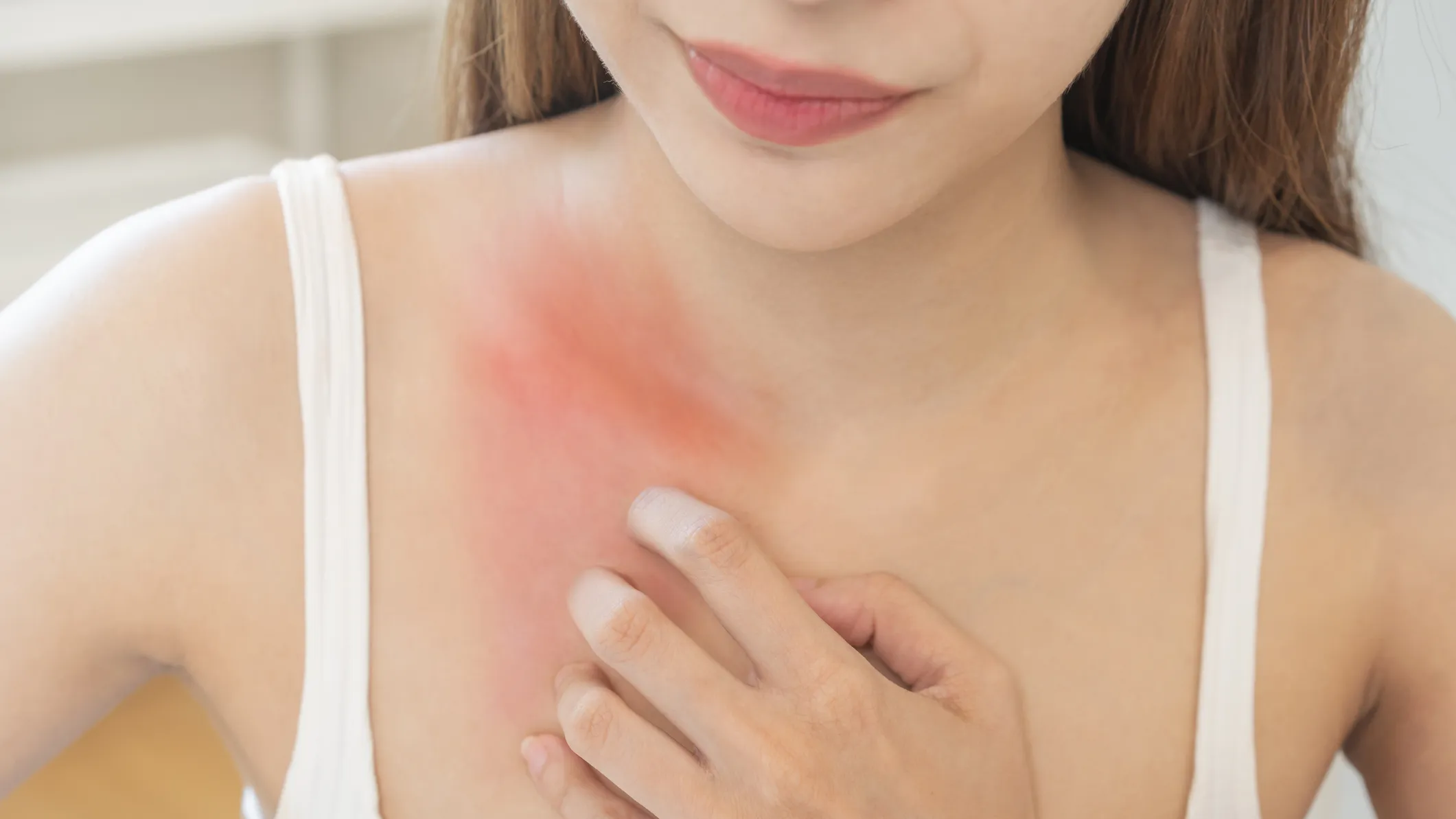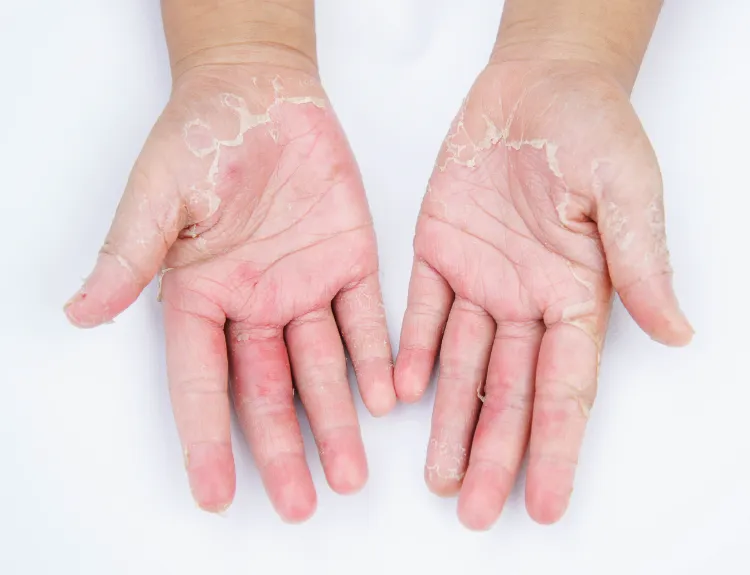Eczema Dermatitis

Background
Eczema (dermatitis), a condition characterized by irritation or inflammation of the skin’s surface, affects 3% of the United States population. Flare-ups from eczema affect a person’s everyday quality of life. Fortunately, your doctor can help you manage the signs and symptoms associated with dermatitis.
Types
While there are numerous types of eczema that can occur, the most common types include:
- Atopic eczema / atopic dermatitis – the most common type, which typically occurs in the creases of your elbows, knees and ankles and usually begins during childhood
- Neurodermatitis – can be triggered by stress and appears as thick, itchy, scaly patches, similar to atopic eczema
- Contact dermatitis – occurs when the skin comes in contact with and reacts to certain substances
- Hand eczema – affects the hands and often is irritated by chemicals used during work
- Dyshidrotic dermatitis – most commonly in women, presents as small blisters on the hands or feet
- Stasis dermatitis – caused by leaky veins and present as redness, pain, and itching

FAQs Eczema
Causes
The exact cause of eczema is unclear. However, people with dermatitis may have gene variations that affect the skin’s ability to retain moisture and protect against bacteria, irritants and allergens. This compromised state allows exposure of environmental factors, irritants and allergens to the skin and thus immune system.
In some children, food allergies play a role in causing dermatitis. Moreover, eczema commonly is seen in families with history of allergies, asthma, and other immune system or skin problems.
These common irritants can cause exacerbation of one’s dermatitis:
- Hot or cold temperatures
- Certain soaps or detergents
- Chemicals
- Animal dander
- Upper respiratory infections
- Stress
- Rough materials in clothing or bedding
Signs and Symptoms
Visit Aspire Skin Health if you experience any of the following signs or symptoms on the skin:
- Itching
- Rash
- Bumps
- Blisters
- Cracks
- Dryness
- Scaling
- Discoloration
Eczema affects various parts of the body, with the following common problem areas:
- Face
- Hands
- Feet
- Wrists
- Knees
- Skin creases
Diagnosis
Currently, there is no specific test that can determine whether a person has eczema. Instead, the doctor makes a diagnosis of eczema using the following methods:
- Physical exam – involves examination of the skin to look for redness, discoloration, and other signs of dermatitis
- Medical history evaluation – includes asking questions about past skin conditions, reactions to certain materials, and other relevant medical problems
- Evaluation of symptoms – involves asking you about your past and current symptoms
Because eczema often occurs in patients who also have allergy, the doctor may recommend skin allergy testing. This test can help determine if any allergens trigger the eczema to flare up and what things to avoid.
Treatments
The biggest concerns with eczema are itching and irritation, which can worsen the skin condition and even lead to infection. Treatment often consists of a personalized skin management plan tailored for each patient. Some of the treatment options include:
- Cold compresses
- Certain moisturizing creams
- Hydrocortisone cream
- Prescription anti-inflammatory cream
- Antihistamines
- Topical immunomodulators (TIMs)
- Antibiotics (when an infection is present)
- Light therapy
Schedule a Consultation
If you are experiencing signs and symptoms of eczema, visit Aspire Skin Health for treatment options. Our clinic provides compassionate and personalized medical care using cutting-edge treatments. Contact us today to schedule an appointment.
For other medical conditions, please visit the main page for Medical Services.
